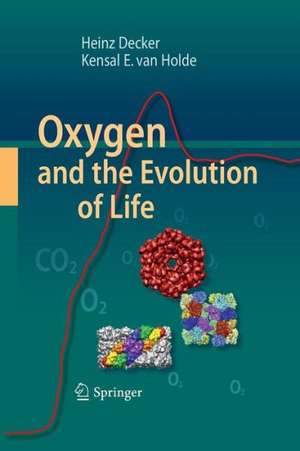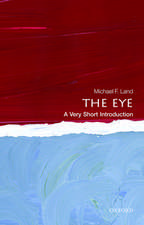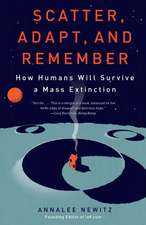Oxygen and the Evolution of Life
Autor Heinz Decker, Kensal E. Van Holdeen Limba Engleză Paperback – 23 noi 2014
| Toate formatele și edițiile | Preț | Express |
|---|---|---|
| Paperback (1) | 635.01 lei 6-8 săpt. | |
| Springer Berlin, Heidelberg – 23 noi 2014 | 635.01 lei 6-8 săpt. | |
| Hardback (1) | 639.73 lei 6-8 săpt. | |
| Springer Berlin, Heidelberg – 4 dec 2010 | 639.73 lei 6-8 săpt. |
Preț: 635.01 lei
Preț vechi: 747.06 lei
-15% Nou
Puncte Express: 953
Preț estimativ în valută:
121.51€ • 129.94$ • 101.31£
121.51€ • 129.94$ • 101.31£
Carte tipărită la comandă
Livrare economică 18 aprilie-02 mai
Preluare comenzi: 021 569.72.76
Specificații
ISBN-13: 9783642423840
ISBN-10: 3642423841
Pagini: 184
Ilustrații: XI, 172 p.
Dimensiuni: 155 x 235 x 10 mm
Greutate: 0.27 kg
Ediția:2011
Editura: Springer Berlin, Heidelberg
Colecția Springer
Locul publicării:Berlin, Heidelberg, Germany
ISBN-10: 3642423841
Pagini: 184
Ilustrații: XI, 172 p.
Dimensiuni: 155 x 235 x 10 mm
Greutate: 0.27 kg
Ediția:2011
Editura: Springer Berlin, Heidelberg
Colecția Springer
Locul publicării:Berlin, Heidelberg, Germany
Public țintă
ResearchCuprins
Oxygen, its nature and chemistry.– What is so special about this element? – A brief history of oxygen.– Coping with oxygen.– Aerobic metabolism – benefits from an oxygenated world.– Facilitated oxygen transport.– Climate over the ages; is the environment stable? – Global warming: human intervention in world climate. – Oxygen in medicine.– Oxygen and the exploration of the universe.
Textul de pe ultima copertă
This book describes the interlaced histories of life and oxygen. It opens with the generation of the element in ancient stars, and its distribution to newly formed planets like the Earth. But free O2 was not available on the early Earth, so the first life forms had to be anaerobic. Life introduced free O2 into the environment through the evolution of photosynthesis. This must have been a disaster for many anaerobes, but others found ways to deal with toxic reactive oxygen species. Some even developed a much more efficient oxygen-based metabolism. The authors vividly describe how the introduction of O2 into the atmosphere and oceans changed world chemistry, and allowed the burst of evolution that created today’s biota. They also discuss the interplay of O2 and CO2, with consequences such as worldwide glaciations and global warming. On the physiological level, they present an overview of oxidative metabolism and O2 transport in animals and the importance of O2 in human life and medicine, emphasizing that while oxygen is essential, it is also related to aging and many disease states.
Caracteristici
Written in an easily understandable way, this text makes a very interesting and entertaining read The authors, both biophysicists, depict how changes in the earth's atmosphere have been interrelated with the origin of life and delineate the important implications for human health and humanity's future This book evolved from the authors long-standing interests in proteins and oxygen transport, which lead to the much deeper question as to how oxygen utilization were related to living organisms Includes supplementary material: sn.pub/extras











